Agenda
Are you ready to connect with the thinkers at the leading edge of lean improvement journeys?
October 3-6, 2022
Injecting Knowledge into Innovation
At the root of all innovations is knowledge. Knowledge from history, from experiments and testing. Using scientific methods, data is reduced to knowledge. Fitting this knowledge together like puzzle pieces, leads to new idea, more knowledge and ultimately innovations – breakthrough ideas the propel our companies and our communities forward.
So why is innovation hard to do? How can we make it faster/easier? I don’t know if we will ever make it easy, but we can be more efficient. Through continuous process improvement and through leveraging knowledge, new ideas come forward and are leveraged into innovations. But it is not just knowledge. Knowledge by itself cannot generate innovations. We need methods and cultures to leverage this knowledge. We need the environment fostering creativity. We need the freedom to fail and learn. How do we establish this attitude, this culture, in our companies and our lives?
Join some of the leading practitioners in Lean who will share, not only how we inject knowledge into innovation, but how we can foster a culture or innovation. A culture for creativity and exploration that enables knowledge to lead to innovations.
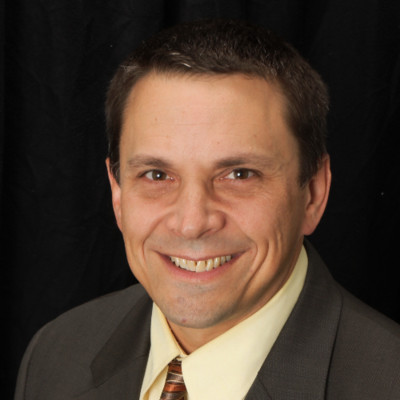
Geoff Neiley
Sr. ME Manager, Rapiscan|AS&E
Conference Chair
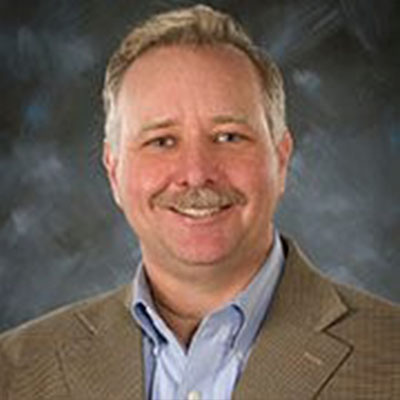
Dantar Oosterwal
Sr. VP & Partner - Lean Product Development practice lead at Argo
Conference Co-chair
Host hotel for rooms and all functions will be the Wyndham Newport Hotel, on the water in Newport, Rhode Island! Stay with us for a convenient conference experience!
Monday, October 3, 2022 Pre-Conference Workshops
Workshop Track 1
9:00am - 4:30pm [EDT]
Lunch Included
Lean Product and Process Development basics 101
Norbert Majerus, Norbert Majerus Consulting
Dantar Oosterwal, Sr. VP and Partner, Argo
This workshop introduces participants to the foundational principles of lean product and process development. It is targeted specifically for newcomers to the community to help get them up to speed on some of the basic concepts so they can get the most from the main conference.
For this workshop it is assumed that participants know at least the basic concepts and tools of lean product development. The workshop examines the five stages of the “Lean Wheel,” which represents a proven path for starting and/or improving a lean initiative:
- Identification of customer value and waste
- Understanding the value stream through gemba observations
- Application of flow methods to create a stable and faster process
- Application of pull techniques (e.g., kanban) and standardization
- Continuous improvement of the lean process and striving for perfection
The workshop also addresses other lean concepts related to lean product and process development and subjects such as organization forms and knowledge management.
The workshop focuses on the following topics:
- The prerequisites of a good lean product development process
- Five stages of the Goodyear Wheel that guide a lean initiative
- Implementing a continuous improvement system
- Basic principles of knowledge management and other lean product development tools
- Lean tools and principles, including the Goodyear Wheel, value-stream mapping, advanced knowledge management, lean project management, flow management, Little’s Law, cadence, visual planning and visual management, pull, kanbans, and continuous improvement
- Many hands-on activities and simulations
By attending this workshop, what will attendees be able to do upon returning to work on Monday?
- Efficiently roll out a lean R&D initiative
- Re-energize an existing lean R&D initiative
- Communicate and engage others in a proven roadmap for the improvement
Who should attend this session:
- Leaders, managers, and practitioners in R&D organizations
- People engaged in non-manufacturing processes (banks, insurances, healthcare, etc.
Norbert Majerus.is a highly experienced man. Beginning in 2005, Norbert implemented a principles-based lean product development process at the three global innovation centers of The Goodyear Tire & Rubber Company. For more than a decade he was Goodyear’s lean champion in research and development. Norbert has worked most of the disciplines in the Goodyear innovation centers in Luxembourg and Akron.
In 2016, his first book Lean-Driven Innovation was published. Also in 2016 the Goodyear R&D organization applied for and received the AME Excellence Award. Norbert has spoken at many conferences in the United States and other countries. Since retiring from Goodyear in 2017, he continues to share his extensive lean expertise.
Dantar Oosterwal has a passion for Innovation and an enthusiasm for the improvement of Business Systems. At the intersection of these two interests, Dantar is a leader in the application of lean methods in new product development creating dramatic improvements in effectiveness and efficiency. Besides the award winning book, ‘The Lean Machine’, Dantar has also co-authored together with Durward Sobek the publication of Allan Ward’s manuscript, ‘Visible Knowledge for Flawless Design’.You can learn more at http://theleanmachine.org/ Or you can learn about Dantar’s latest initiative at DevelopLean.com Dantar holds a BS degree in Mechanical Engineering from The University of Michigan and a Masters degree in Management from the Sloan School of Management at MIT.
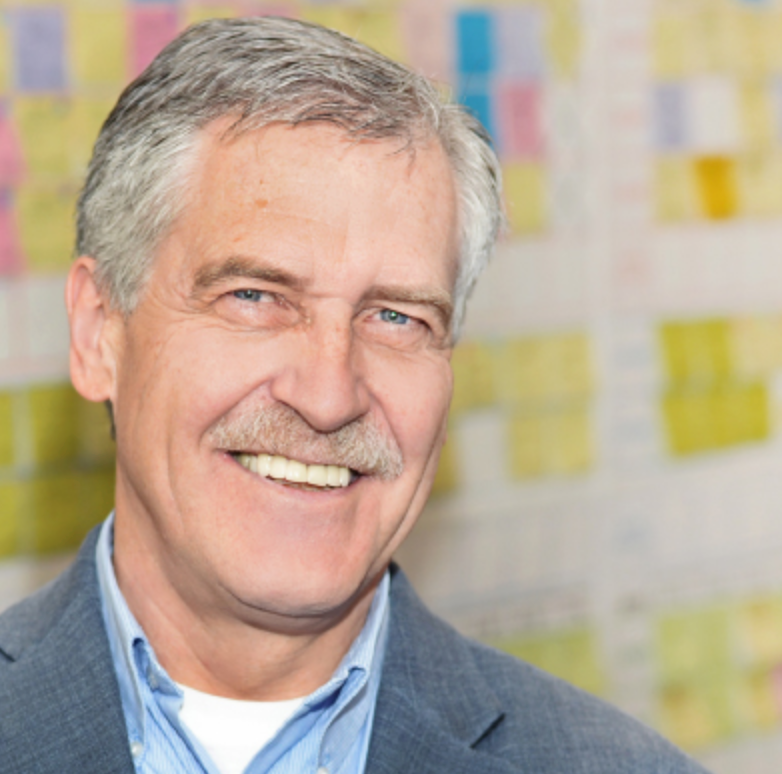

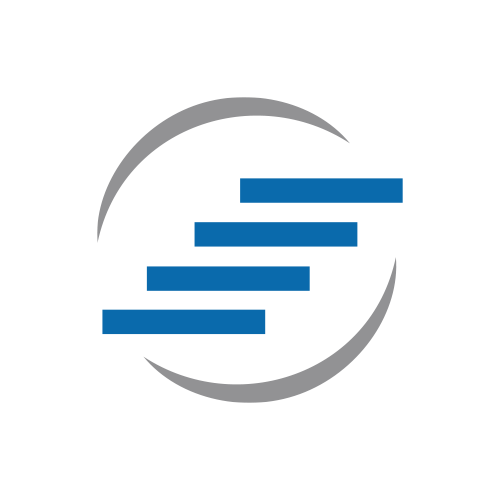
Workshop Track 2
9:00am - [EDT]
Visual Management for Lean PD
Matt Albin / Carrie Albin, Spark Performance Solutions
Do your development teams struggle with communication and accountability between members? Do they ever work with obsolete information? Does management feel ‘in the dark’ about project status?
If so, then attend this session to learn how implementing Visual Management can help address the issues that slow progress and kill team energy. The session will cover why VMS should be one of your first steps to accelerating your product development cycles and how to implement and sustain the use of visual management systems.
Matt became a visual management evangelist in 2016 while working for Amway Corporation on a project to reduce product development time by 50%. After a reflection on the ‘current state’ a consistent theme was that product development team meetings were not effective which led to low energy, slow progress and sub-optimal outcomes. Participants on teams said that team meetings were ‘painful’ and common sources of team member frustration included poor attendance, repeated discussions, lack of clarity on next steps and low levels of accountability. These pain points reduced commitment to project success and lowered engagement for many teams. If these pain points sound familiar attend this workshop to learn how Amway and other organizations have successfully used visual management and short high energy huddles as a way to speed up the time from “need identified to need met” which is at the core to any process.
Workshop participants will: learn a repeatable roadmap to implement successful visual management, apply the road map by participating in a small group to build their own physical visual management board, conduct a mock huddle and, using a real case study, how to adapt their visual management and huddles to a hybrid or fully virtual model.
Matt’s career spans over 20 years as a global business leader where he worked in new product development, project management, marketing, procurement, supply chain management and continuous improvement. He has successfully developed people and implemented Lean practices and human-centered design methods in knowledge-based work and operations across the globe including Canada, England and Brazil.
Matt is a Lean Six Sigma Green Belt, Human Centered Design facilitator, holds a BS in Mechanical Engineering Technology and an MBA in Supply Chain Management and Leadership and Change Management from Michigan State University.
Carrie’s 20-year career as a teacher, program manager, and instructional design consultant gave her the experience needed to start Spark Performance Solutions. Her drive and dedication to her clients and passion for education ensures each project's success. Her current passion is providing meaningful learning experiences at the right time and using the right method of delivery.
Carrie holds a BA in Secondary Education from University of Michigan and a Masters in Instructional Design from Michigan State University.
Matt and Carrie work for Spark Performance Solutions, LLC whose purpose is to help organizations achieve their goals by unleashing the knowledge and creativity of their staff through effective and engaging solutions for eLearning and talent development.
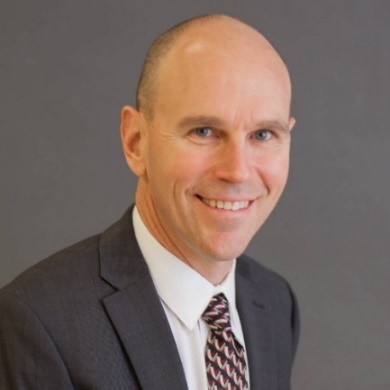
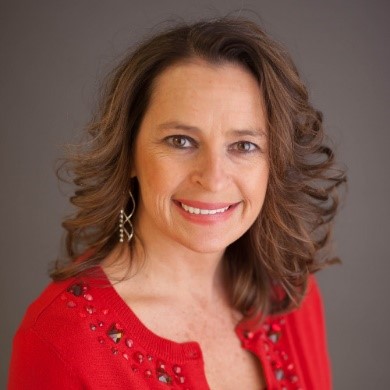

12:00pm - [EDT]
Lunch
1:00pm - 4:30pm [EDT]
The thinking and behaviors needed for a successful and sustainable change to how innovation is done
Matt Albin, Spark Performance Solutions
Is your organization struggling to change how innovation is done? Are you further into the change but worried about how to sustain the new approach? If so, then this newly developed presentation about managing change and the supporting behaviors to succeed in delivering innovations to the market will help you change the trajectory of your initiative.
Rather than focus only on ‘change management,’ which is often an afterthought or just a fancy communication plan, the workshop takes an integrated approach to sustainable change including the thinking and behaviors that support a Lean development process. This session is an updated and interactive version of the well-received LPPDE Virtual Summit session in January. During the session you will learn what thinking and behaviors support rapid innovation and those that obstruct it. It will also include how to identify specific needs at your own organization and multiple approaches to engage the innovation community to help them take ownership of behaviors that lead to faster innovations. A variety of hands-on activities and learning approaches will be covered including an activity so you can learn how to develop these models at your company in an engaging way.
Matt’s career spans over 20 years as a global business leader where he worked in new product development, project management, marketing, procurement, supply chain management and continuous improvement. He has successfully developed people and implemented Lean practices and human-centered design methods in knowledge-based work and operations across the globe including Canada, England and Brazil.
Matt is a Lean Six Sigma Green Belt, Human Centered Design facilitator, holds a BS in Mechanical Engineering Technology and an MBA in Supply Chain Management and Leadership and Change Management from Michigan State University.
Matt works for Spark Performance Solutions, LLC whose purpose is to help organizations achieve their goals by unleashing the knowledge and creativity of their staff through effective and engaging solutions for eLearning and talent development.


5:00pm - [EDT]
Dinner Reception
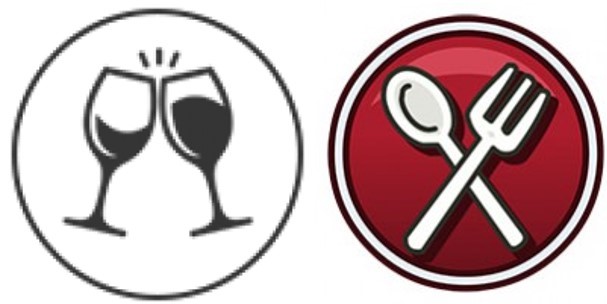
Tuesday, October 4, 2022 Conference Day 1
8:00am [EDT]
Summit Welcome - Defining Injecting Knowledge into Innovation
Geoff Neiley, LPPDE Conference Chair
Geoff Neiley will open the day with his vision for the conference focused on injecting knowledge into innovation. Innovation may be hard to cultivate, but by applying lean engineering principles and focusing on the knowledge, success will be within your reach. During the conference we will focus on LPPD principles from practitioners from established companies, consultants as well as the latest findings from universities. As usual the main conference will end with two interactive workshops where your learnings can be applied to solving real-world problems.


8:10am - [EDT]
Keynote: Developing your Teams to Accelerate your LPPD Innovation
Bruce Hamilton, GBMP
While applying co-located cross-functional teams to LPPD has an obvious effect of reducing information queues between functions, a more subtle and far more significant transformation in interpersonal relationships and shared purpose creates a super-charged environment of collaboration and innovation. Every team member becomes part of a peer network where there are no barriers to line of sight or conversations overheard. Without silos, small problems can be squelched before they grow, while spurts of inspiration are immediately available to all.
Bruce Hamilton, President of GBMP and creator of “Toast Kaizen” offers personal LPPD experience from 50 years as an operating manager and Lean consultant concerning the challenges and benefits of co-located teams. According to Bruce, “Organization follows strategy and if you don’t organize differently for LPPD, your old organizational structure will hold you back.”
Bruce Hamilton is President of GBMP, a Boston-based non-profit founded in 1994 that provides Lean and Six Sigma assistance to manufacturing, healthcare and service organizations. Prior to joining GBMP, Bruce spent thirty years in manufacturing, leading his factory to a Shingo Prize award in 1990. From 1996 to 1998, his factory was also a project site for the Toyota Production System Support Center (TSSC).
Bruce is author and actor in the 2004 Shingo Prize winning video, Toast Kaizen and co-author of the comprehensive multimedia training package, e2 Continuous Improvement System, which combines GBMP’s acclaimed video content with self-study workbooks, classroom learning and workplace practice. In 2000 he was inducted in the Shingo Prize Academy and in 2015 was inducted into the AME Manufacturing Hall of Fame.

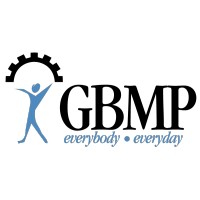
9:00am - [EDT]
Keynote: DX-Platform for Lean Product Development
Takashi Tanaka, Mitsubishi UFJ Research & Consulting Co
The theme “DX Platform for LEAN product development”.
- Learning from top automotive OEMs
- Process and systems with human factors
DX is a radical change of the entire company tying together the processes and IT systems in an effective way. It is about developing a common platform using digital technology and change the structure of the company and reforming the bottleneck business at the same time.
Currently, it’s necessary to use DX (Digital transformation) for global product development. By applying Lean, DX will be easier to execute. The keys to implementing DX is that business processes, IT/ systems, and then management-related activities are being implemented in a well-balanced manner.
Takashi will explain what is happening at the product development with examples.
- First, he will share the latest architecture of the product development platform.
- Next is the QIP (Quality into process) and cost planning. Here are some cases of how to apply trade-offs using digital.
- In addition, to support CASE and AD, it is a method for modularization in a cyber and physical environment using MBSE (Model-based systems engineering).
- Finally, he will explain the system architecture that Toyota was aiming for in the early 2000s and the actual implementation procedure.
Takashi Tanaka has a deep understanding of a Toyota management system (TMS) and he has applied it at many manufacturing companies of Japan and in Western countries, not only automobile, but also airplane, electrical, and medical equipment.
As a PMO for PLM Platform development and implementation, he has acquired a deep experience and understanding. Currently, Takashi is working for DX Platform development using Local 5G, Cloud, AI/Machine learning to accomplish the dynamic capability (企業変革) for clients.
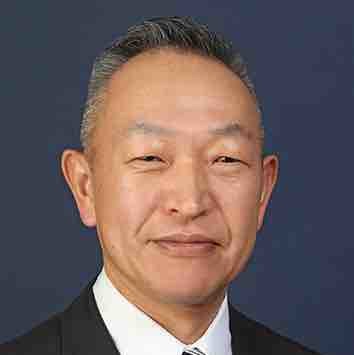

10:00am - [EDT]
Networking Break + State your problems

10:30am - [EDT]
Set-Based Design
Dantar Oosterwal, Argo Consulting
How can set-based design be applied to your innovation project? As one of the most misunderstood principles of lean product development, applying it at your startup or in your sandbox can make the difference between winning or losing in the battle for market disruption. In this session Dantar will explain the fundamentals and how he has applied them on numerous products from Harleys to shaving cream.
Dantar Oosterwal has a passion for Innovation and an enthusiasm for the improvement of Business Systems. At the intersection of these two interests, Dantar is a leader in the application of lean methods in new product development creating dramatic improvements in effectiveness and efficiency. Besides the award winning book, ‘The Lean Machine’, Dantar has also co-authored together with Durward Sobek the publication of Allan Ward’s manuscript, ‘Visible Knowledge for Flawless Design’. You can learn more at http://theleanmachine.org/ Or you can learn about Dantar’s latest initiative at DevelopLean.com Dantar holds a BS degree in Mechanical Engineering from The University of Michigan and a Master’s degree in Management from the Sloan School of Management at MIT.

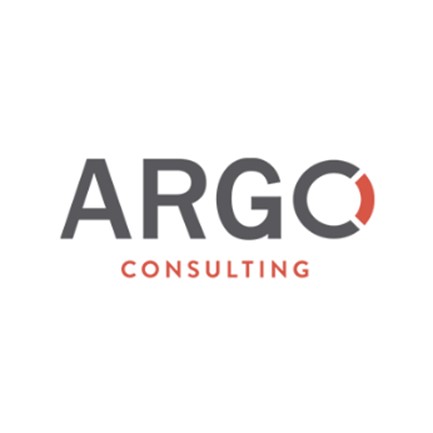
11:10am - [EDT]
Break
11:20am - [EDT]
Practical Experience with LPPD
Carolyn Carter and Karl Oestergaard, Argo Consulting
Carolyn and Karl will reflect and give examples from a recent case where they have supported the transformation to a LPPD system, where they are introducing new methods for Lean Product and Process development methods.
Carolyn Carter has a long career at the Kimberly-Clark Corporation and has eextensive experience in Research Product Development with additional focus on Lean and LPPD in Development, and Engineering, Operations and Quality in Manufacturing.
Carolyn’s experience include:
- Leader of Lean Product and Process Development launch across multiple Business Units
- Product Development Leader for commercialization of large Personal Care Program
- Leadership and development of Process Optimization Program Product Supply for North America and European Personal Care
- Lean Strategic and A3 Problem Solving applications as Quality Manager in Personal Care Manufacturing
- Quality Manager in multiple regulated and non-regulated Personal Care Manufacturing Plants
- Mechanical Engineer and Project Leader in High Speed Personal Care Manufacturing Environment
Karl Oestergaard is a proven executive leader with more than 25 years’ experience in Product and Process Innovation, Product Development and Management. He has worked and lived in four different countries (US, Japan, the Netherlands and Denmark) and holds both US and DK passports. He created and led multiple global cross-functional teams and has worked across three industries: automotive, food processing and Aerospace/defense with a focus on innovation, change management, strategy development, organization building and collaboration.
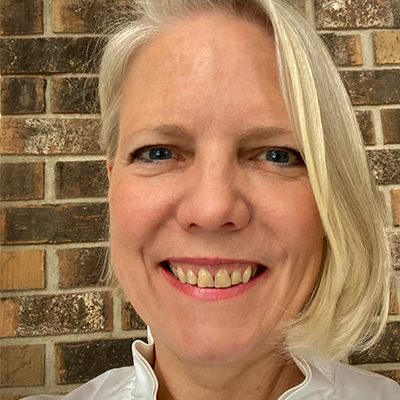
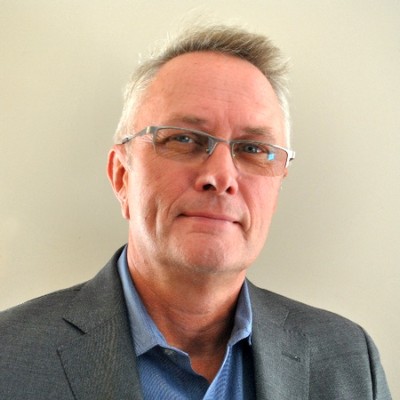

12:00pm - [EDT]
Networking Lunch with the Board of Directors, LPPDE

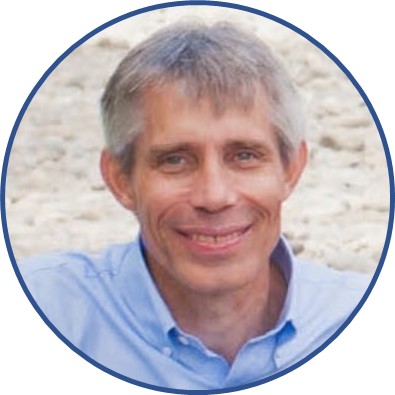

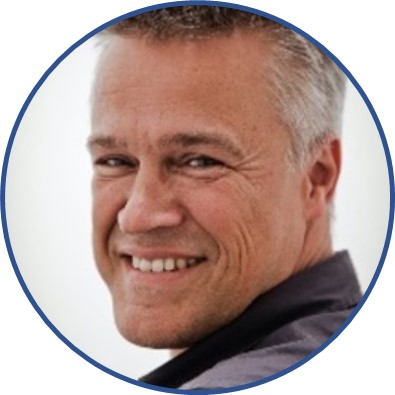

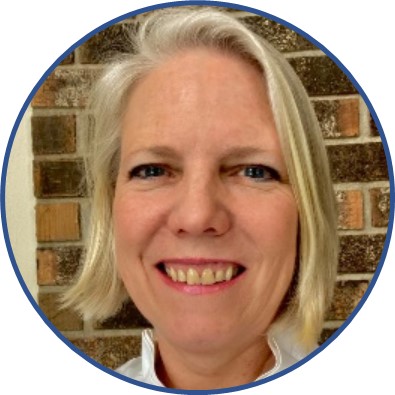
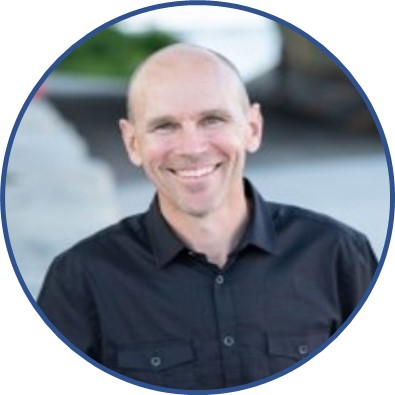
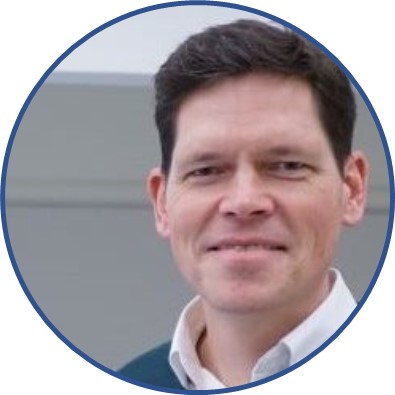
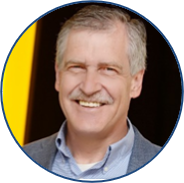
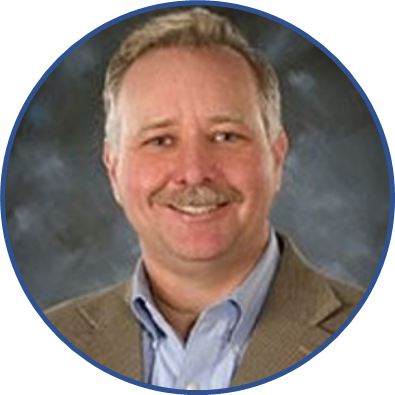

Bob Stavig, Arnoud Herremans, Carolyn Hutchinson Carter, Christer Lundh, Dantar Oosterwal, Durward Sobek, Geoff Neiley, Matt Albin and Norbert Majerus, LPPDE Board of Directors offers their knowledge and experience to help the participants with the ultimate knowledge Exchange!
This session is moderated by Peter Palmér, LPPDE. Email your problem to us or bring your questions to the conference. You will be assigned a board member as a personal coach to discuss, understand and solve your problem together.
Bring a problem, we connect you to a board member for a One on One common problem solving. In the best of worlds you will come home with solutions to your major problems. At least you should have a set of experiments to run to increase the learning faster. Don´t miss this interactive opportunity to Exchange your Knowledge with an experienced coach to share and learn.
1:30pm - [EDT]
Mission Command in Technology Development Context
Christer Lundh, AUFERO
The target audience is primarily leaders driving innovation and technology development. Speed has become an increasingly important foundation for successful innovation and technology development. To achieve speed and full potential of Agile and Lean in technology development, leaders have a lot of valuable learnings to make from the leadership philosophy of Mission Command. Its origin from Auftragstaktik while proven its worth for over two centuries, it is still a modern leadership principle.
Auftragstaktik is a German expression describing a rapid military tactic, designed to dismantle enemy forces through the use of mobile forces.
Those who recognize the turbulent nature of innovation and technology development at speed, Mission Command principles provides for fast, flexible, and decisive action in a complex environment characterized by uncertainty, fluidity, and rapid change.
Leader's that apply Mission Command, informs what his/ her intention is, sets clear achievable objectives. It is the leader’s responsibility to specify the objective and the framework within which the subordinates have to accomplish the mission. The leader provides all resources required to carry out the mission. Acting based on an intent empowers subordinates’ decision-making, decentralized execution and provide room for initiatives appropriate to the situation. The planning and execution itself become the executor’s responsibility. Together the leader and their teams represent the strong bond and mutual trust, built through shared values and experiences of overcoming adversity. Hereby the whole organization attain speed and start creating outcomes beyond the means.
Successful leaders within this organization foster an environment of experimentation, mistakes and uncertainty, giving room for rapid adaptation. Since the world is fundamentally complex and uncertain, organizational change is non-linear. Mission Command enables to comprehend, shape, adapt to, and in turn be shaped by an ever-changing, uncertain and complex environment that creates mismatches and new opportunities.
Mission Command can provide the leader applying Agile and Lean for innovation and technology development the best means to succeed. As Mission Command leader you seek to exploit trust, cooperation, judgment, focus, and implicit understanding to lessen the effects of uncertainty, fluidity, and rapid change. As leader you rely on Mission Command to provide the flexibility and responsiveness to deal with uncertainty and to generate the speed which is recognized as a key element of success in innovation and technology development.
Differences in ‘Mission Command’ and ‘Command and Control,’ and reflect them in a Technology Development context will be covered.
Christer Lundh has over the past fifteen years, in different leader positions effectively implemented, and applied product development process based on Flow and Knowledge Based Development (KBD) at multiple companies.
To empower people, Christer has successfully adapted development teams around ‘Function / Value’ recognized by customers. Small interdisciplinary Function Teams, applying Cadence and Flow on two-to-three-weeks takt, using Kanban Flow Boards and Daily Stand-up. And training and mentoring leaders and engineers, on the job training, of A3 process for problem solving / gap closing.
Christer has worked in lean set-up as Entrepreneurial System Designer leading a new venture Lean start-up. With speed and focus, rapid and valuable customer feedback and great sense of urgency, the development teams swiftly improved on every new prototype. Enabled teams to learn about customers’ true needs. With servant leadership, aspirational targets and empower of people, teams quantify and make gaps visible. To see, boost motivation, and create focus. Applying homing (gap-closing), with multiple quantified countermeasures, teams together close their gaps, and the best – them owning the solutions.
At Kongsberg Automotive, Christer initiated a companywide transformation implementing Knowledge Based Development in 2008. He led that strategic transformation during 2009 working together with Michael Kennedy (TCC). Thereafter Christer led the pilots as trainer that pioneered a full global roll out during 2010-2013.
Christer, owner and consultant AUFERO AB. Embedded, as a transformational "catalyst", he offers help to leaders to succeed with Agile and Lean Product Development.
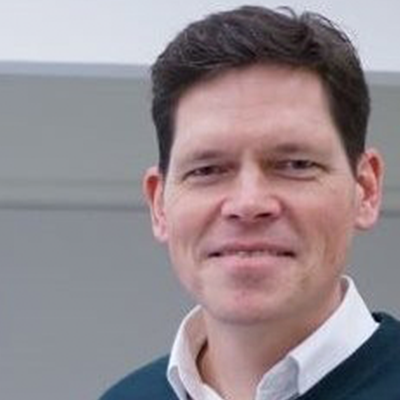
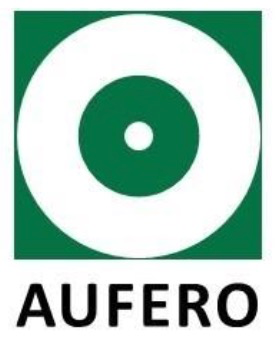
2:10pm - [EDT]
Networking Break

2:30pm - [EDT]
The Concept Paper: a Quick-Start Guide to Defining Project Requirements
Larry Navarre, Kettering University
This session will introduce the LPPD technique of the Concept Paper. This document is the summation of the “study period” in LPPD. The Chief Engineer and a small cross-functional team expend substantial effort, typically over a period of months, to define the requirements of the project. The Concept Paper is the essential guide for the project that can enable effective and efficient development. As applied in LPPD the Concept Paper has several useful features not common in other Project Requirements documents. In this session we will identify the importance of the Concept Paper in development, briefly outline the contents of the Concept Paper, and provide guidance on how to complete its several sections using an example.
Larry Navarre is a full-time Lecturer at Kettering University teaching courses in innovation development, supply chain management, project management, and business analytics since 2008. Larry has earned a Bachelor of Business Administration degree from Kent State University (Kent, Ohio) and a Master of Science in Management degree from Purdue University's Krannert Graduate School of Management (West Lafayette, Indiana). Larry has 20 years of management experience in the steel, machinery, and plastics industries. His management responsibilities have spanned from Production Supervisor to Director of Global Product Management and Asian Operations. He has worked internationally with customers, suppliers, and colleagues in 20 countries. Larry is also a managing owner of two family-owned small businesses managing commercial real estate.
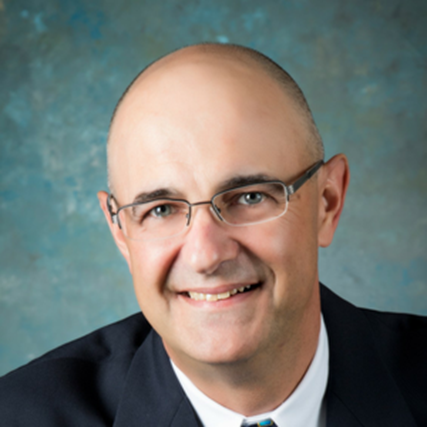

3:10pm - [EDT]
Break
Mini-Workshop
3:20pm - 5:00pm [EDT]
How the Brain Works
Arnoud Herremans, Y47 consultancy
The development of a Lean improvement culture within an organization implies a behavioral change. To change people’s behavior is the hard part of any Lean implementation and this is what makes Lean much more than just the implementation of the Lean tools. But how does behavioral change work? What are the fundamental psychological processes involved? How do we recognize these processes and use them to support the development of a Lean culture?
During this workshop you will get answers to these questions. You will get a good understanding of some fundamental processes that go on in the brain and a link will be made with Lean thinking and some Lean techniques. You will discover how Lean interacts with these psychological processes and learn, through short exercises, to recognize these processes in your own situation.
Through this workshop you will gain more understanding of the sometimes difficult phases a Lean implementation goes through. You will gain insights and learn how to deal with these cumbersome situations. With this knowledge your Lean development will stand a better chance.
Arnoud Herremans is a positive, open minded, creative and inspiring person. He is able to create a culture where taking responsibility, ownership and initiative go hand in hand with a profound respect for people. Personal feedback and positive coaching are his main tools. He actively look for what makes people tic and incorporate that personal drive in reaching the goals of the organization.
He uses his psychological knowledge and inter-personal skills to shape a team culture that fosters ownership and initiative. Concepts he works with are; empowerment, self awareness, positive mind set, involvement and personal feedback.
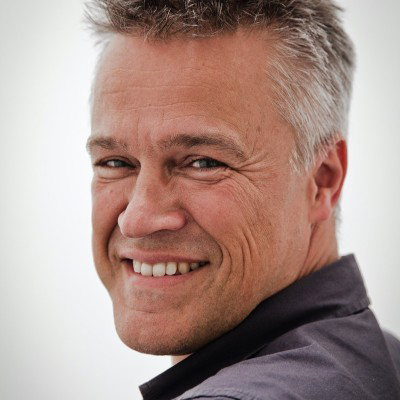

5:20pm - [EDT]
Networking Dinner Reception

Wednesday, October 5, 2022 Conference Day 2
8:00am - [EDT]
Welome back and Reflection
Dantar Oosterwal, LPPDE Conference Co-Chair
Dantar Oosterwal will open the second day recapping our learnings as we focus on injecting knowledge into innovation and prepare us for the day ahead LPPDE


8:10am - [EDT]
Keynote: The Latest in Lean PD
Durward Sobek, Montana State University
Lean Product Development continues to evolve and what is the latest in Lean PD? Durward has researched, studied and taught Lean Product Development at the academic level for many years and will bring his latest insights to the conference. It is always best to apply practices that are grounded in science and backed by proven theories.
Durward K. Sobek II currently serves as Vice Provost of Academic Affairs at Montana State University and Professor in Industrial and Management Systems Engineering at Montana State University. He holds Ph.D. and M.S. degrees in Industrial and Operations Engineering from the University of Michigan, and an A.B. degree in Engineering Sciences from Dartmouth College.
Dr. Sobek has been researching lean product development and lean healthcare for two decades, focusing on how organizations can increase their performance capacity through the application of lean principles. He is co-founder of the not-for-profit Lean Product and Process Development Exchange, Inc. whose mission is to share and expand the body of knowledge around lean product and process development. He is a frequent presenter and has published numerous articles in publications such as Harvard Business Review, Sloan Management Review, and IEEE Transactions on Engineering Management. He is co-author of Lean Product and Process Development, 2nd edition; and is co-author of the Shingo Prize winning book Understanding A3 Thinking: A Critical Component of Toyota's PDCA Management System.
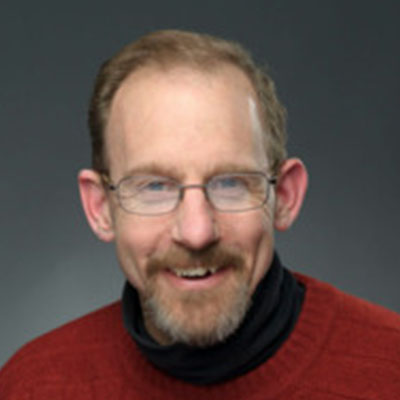

9:00am - [EDT]
Building a Lean Culture of Innovation
Norbert Majerus, Norbert Majerus Consulting
At a recent lean conference, most keynotes were about creating a lean culture (as opposed to implementing lean processes), underscoring the importance that the culture has in a lean transformation. Most keynoters also talked about their need to be more innovative.
Could a lean culture with its emphasis on standard work and efficiency hurt a company’s ability to innovate? Can there be synergy between an innovation culture and a lean culture? Does it take two cultures, or can a good change management program accomplish all objectives for lean and innovation?
Innovation excellence is the implementation of a superior innovation system and the simultaneous creation of a sustainable innovation culture.
The innovation system includes:
- An agile risk management system that allows rigorous assessment of an abundance of new ideas at high speed and low cost
- A superior knowledge management and technology development process
- A cost efficient mass design process
- Lean principles to achieve perfect delivery, with much higher speed and lower cost
Innovation culture includes traditional lean principles as well as methods that foster creativity and inventiveness (not just in R&D but across the organization):
- Respect and care for people
- Engagement and empowerment of all associates and stakeholders
- Humble leadership
- Never-ending desire to improve
- The removal of fear at all levels
- Allowing people to experiment effectively and efficiently
- The right strategy and reward system
Innovation excellence delivers rapid R&D results while establishing behaviors and beliefs required for incessant ideation and continuous improvement.
Norbert Majerus is a highly experienced man. Beginning in 2005, Norbert implemented a principles-based lean product development process at the three global innovation centers of The Goodyear Tire & Rubber Company. For more than a decade he was Goodyear’s lean champion in research and development. Norbert has worked most of the disciplines in the Goodyear innovation centers in Luxembourg and Akron.
In 2016 the Goodyear R&D organization applied for and received the AME Excellence Award. Norbert has spoken at many conferences in the United States and other countries. Since retiring from Goodyear in 2017, he continues to share his extensive lean expertise.
Norbert Majerus spent his 40-year career in innovation, and he implemented lean innovation systems supported by a culture of innovation. Norbert included most of his learnings in his two books, Lean-Driven Innovation and Winning Innovation. In his keynote he will share personal experiences and stories to illustrate what a lean culture of innovation looks like and how companies can create it. The innovation culture overlaps with a lean culture, bringing in key factors specific to innovation and creativity. Norbert is convinced that behaviors and cultural drivers are best conveyed by stories and examples. People have to “see” behaviors to learn, and stories also convey emotions and feelings that resonate with audiences in ways that data and diagrams do not.


10:00am - [EDT]
Networking Break

10:30am - [EDT]
From the Classroom to the Real World
Marcos Esterman, A. O. Smith Corporation
After many years in academia Marcos decided to take the step out to the “Real World” again as Enterprise Excellence Manager, Product Design Engineering. In this session, Marcos will describe his thoughts about the implementation of his knowledge into his new company and the challenges he is expecting.
Marcos Esterman has over 25 years of combined experience in industrial and academic settings. Prior to joining the RIT faculty, he worked at General Electric Medical Systems and at Hewlett-Packard. His analysis work at HP enhanced design and product architecture decision-making. Currently, he is an Associate Professor in the Industrial and Systems Engineering Department at the Rochester Institute of Technology. His teaching interests are in product and process development, and systems engineering. He also teaches in the Multi-Disciplinary Design, and the Masters in Product Development Programs. Marcos is director of Lean Engineering and Product Development Simulation Laboratory, which seeks to improve the effectiveness of product development and increase commercialization success by closing the gap between academia and industry. He researches structured product development methods, integration of lean principles into the product development process and print as a manufacturing process.
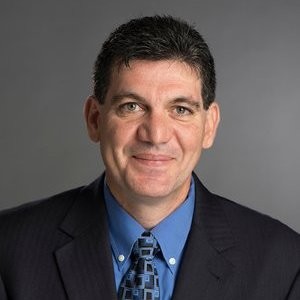
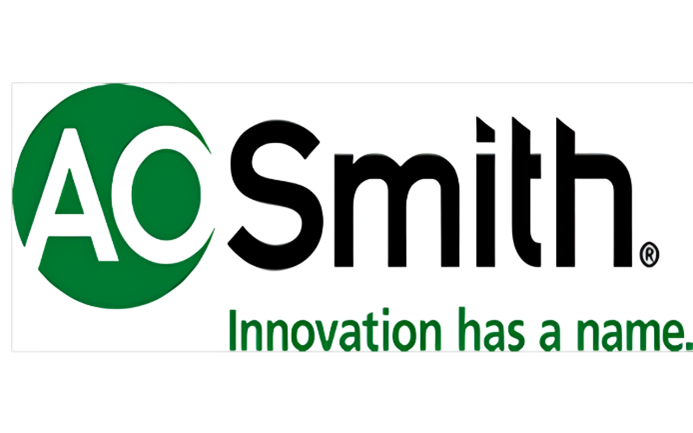
11:10am - [EDT]
Break
11:20am - [EDT]
The Product Development Value Stream
Joe Murli, The Murli Group
“The Product Development Value Stream”
- Who is the customer?
- What do they need?
- What products/services will satisfy their needs?
- How will we provide these products/services?
- How will we manager our product line?
- How will we measure performance of the Value Stream?
Ever since Norman Bodek translated into English the first Japanese textbooks on the subject of Lean back in 1979, there has been a litany of people explaining Lean, reinventing it, morphing it, and claiming to have the true meaning of what it is. Others have taken the route of making changes to the original concept and renaming it so that it appears as a fresh modern offering. Yet others have isolated it as an outdated “manufacturing thing” that has little relevance to the broader workings of a modern business operating in the information age providing products or services on a global basis. It seems that each year we see a dozen more terms for an improved way of running a business. While technology has certainly sped up the development of information, the manner in which we carry out the fundamental functions of the current day corporation are very much as they were when Alfred Sloan wrote “My Years with General Motors” in 1963.
Fact is that there are a few major activity strings that make up a modern business
- Developing new products and services and managing the entire product line through all the phases of maturity from identification of need, to creation, maturity, and ultimately sunset (LPPD) which is what this particular session is focused on
- Making customers aware of what your business does and how it will solve their problems (Sales & Marketing)
- Bringing resources together to create these products and services and put them in the hands of the customer (Operations)
- Identifying where people are needed, what skill sets are required, developing those skills and competencies, or recruiting new people as is needed (Human Resources)
- Administering all of the resources and information required to manage strategy, keep the major Value Streams coordinated and relevant in an evolving world, and keeping everyone informed of areas of success and problems to be resolved (Administration)
At its core, Lean is about optimizing flow rather than making individual steps more efficient, and most importantly, engaging everyone to discover problems and solve them continually. Product development is no exception to this basic truth. In this session we will discuss the LPPD Value Stream, how it works, and how it fits into the overall Lean Management System.
Joe Murli is the author of “The Lean Management System”, teacher, public speaker, and founder of The Murli Group, a People Centered Lean consulting organization.
Joe’s started his Lean journey in 1989 at Pratt and Whitney in what Jim Womack called “The Acid Case” of the Lean transformations in his book “Lean Thinking”.
As time went on, frustrated with the lack of sustainability he searched for a deeper understanding of how to capture the hearts and minds of people in pursuing the three simple questions of Lean.
Everybody, every day, everywhere asking:
How did we do yesterday?
Where was the waste?
How can we do it better today?
Ever since that time he has been dedicated to understanding and teaching Lean as a comprehensive management system that engages people in finding and fixing problems
Currently in retirement he spends his time with family at home, sailing, studying and writing about Lean as a management system, and public speaking.
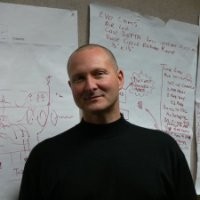
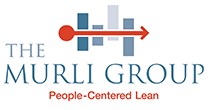
12:00pm - [EDT]
Networking Lunch with Open Space

1:30pm - [EDT]
Injecting Knowledge Into Innovation by Design
Ovidiu Contras, Bombardier Aerospace and Author
Injecting knowledge into innovation is easier said than done. Practice shows us that sometimes the development of new products faces major hiccups, even if knowledge management software is used and technical experts put their tacit knowledge on paper. Understanding the working environment and the company culture becomes crucial to achieving significant and sustained business benefits. How are the technical side and the people side come together in designing the future state of the development process? This is the question Ovi will answer during the session.
Ovidiu Contras, Ovi , is a Lean Coach and author of “Navigating the Lean Transformation”, book covering some of his personal experiences in Lean transformation efforts, as a continuous improvement employee. His career started as a design engineer for high temperatures industrial equipment. Since 2000 he is actively involved in Lean Transformation efforts as Lean Black Belt, Continuous Improvement Manager, Kaizen Promotion Officer or Lean Coach. Ovi’s experience covers all the business aspects, from developing new products to servicing them, including the support functions like Finance, IT, HR… working for companies in Aerospace, Consumer Goods and Research & Development. Ovi is specialized in the application of Lean principles in complicated multifunctional environments where the product is hard to see, and the work is non repetitive.
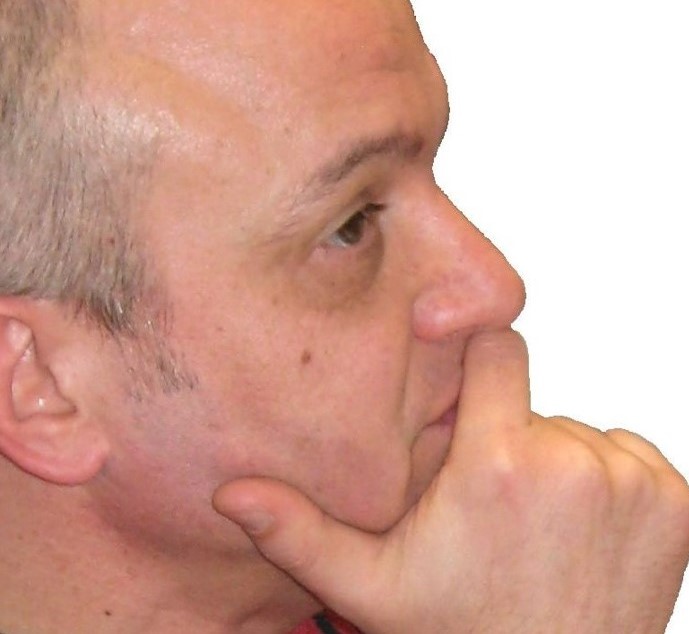


2:10pm - [EDT]
Closing Address
Geoff Neiley, LPPDE Conference Chair
What learnings and practices will you be taking back with you to apply on Monday morning?

2:30pm - [EDT]
Networking Break

Mini-Workshop
3:00pm - 5:00pm [EDT]
Disruptive Innovation
Bob Melvin, Teledyne Marine
Join Bob as we define disruptive innovation and apply our lean engineering principles to “nail-it” with a product that meets the customer interest with our knowledge gaps identified. This interactive workshop will start with defining the job-to-be-done and the outcomes or metrics a customer will use to decide whether to buy your product or service. From there we will use knowledge gap analysis to identify the areas needing engineering focus. Finally, does our business model fit the opportunity, and if not, what should we do.
This is a interactive group session with brainstorming and knowledge gap analysis exercises. It will wrap up with a whiteboard or poster board group business model analysis.
Bob Melvin is a Vice President of Engineering at Teledyne Marine, former board member of the Lean Product & Process Development Exchange, and organizer of the Northeast Savvy Consortium. He holds a Master of Science degree in Electrical Engineering and multiple patents. Bob directs the engineering for six product lines in three locations, San Diego, Cape Cod, and Iceland. Since 2007 Bob has advanced their Lean development process and knowledge library, including writing the book, Knowledge Based Product Development, A Practical Guide. Bob’s recent passion is understanding innovation and how to create a strategic roadmap for both startups and established companies.
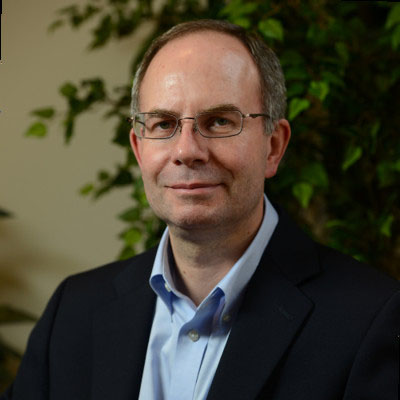
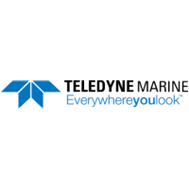
Thursday, October 6, 2022:
Post Conference Workshops
Workshop Track 1 - Full Day
8:30am - 4:00pm [EDT]
Lunch Included
How To Develop of Lean Product Development Roadmap
Bob Melvin + Dan Shropshire, Teledyne Marine
The central part for a Product Development organization is to have a good Research and Development Road-map. This hands-on workshop will tell you how to create and how to maintain your own Research and Development Road-map. It starts with understanding the Jobs-to-be-done in each of your major market segments and how to prioritize product development to eliminate your knowledge gaps and “nail-it” with a product or service.
When defining your roadmap you need to aware of your competitors. How do you stack up? Are there any new entrants who are trying to erode your market share by introducing a lower priced product that meets the minimum to be successful? Could your technology be used in an adjacent market to full a customer’s need?
Or are you a startup trying to disrupt the industry by offering a solution to problem in a simplified manner and at a price point that allows new users to jump in. The only way for you to find success is to get it right the first time and own your newly created market.
We will demonstrate a step by step process that will give you the tools and exercises to build a successful roadmap for you company.
Bob Melvin is a Vice President of Engineering at Teledyne Marine, former board member of the Lean Product & Process Development Exchange, and organizer of the Northeast Savvy Consortium. He holds a Master of Science degree in Electrical Engineering and multiple patents. Bob directs the engineering for six product lines in three locations, San Diego, Cape Cod, and Iceland. Since 2007 Bob has advanced their Lean development process and knowledge library, including writing the book, Knowledge Based Product Development, A Practical Guide. Bob’s recent passion is understanding innovation and how to create a strategic roadmap for both startups and established companies.
Dan Shropshire is Vice President of Sales working for Teledyne Marine Systems in N. Falmouth, MA. Manage team of product line managers, program managers, application engineers, glider operators, trainers, and sales staff; producing some of the most advanced underwater technology in the world. Specialize in market based product development and strategic planning. Previously founded Mobile Phone software start-up Mobile Excursions, LLC in January 2009 with the aim of creating fully interactive multimedia guides to be used at travel destinations around the world. Previously ran Northrop Grumman's Chandra X-Ray Observatory program for NASA, a $2.4 Billion orbiting telescope which continues to make amazing, universe altering, discoveries.

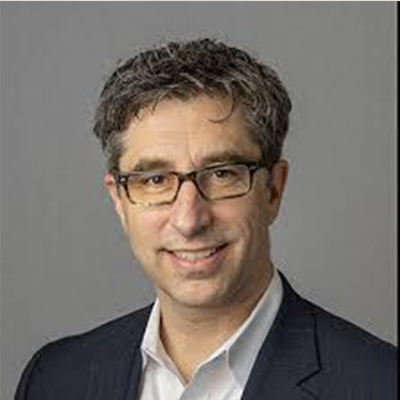

Workshop Track 2 - Two Half-days
8:30am - [EDT]
Lean Creativity
Norbert Majerus, norbert majerus consulting
Arnoud Herremans, Y47 consultancy
This is a brand new workshop combining Norberts long experience about how innovation works and Arnouds deep knowledge abouthow our brain works. The combination results in Lean Creativity!
Could a lean culture with its emphasis on standard work and efficiency hurt a company’s ability to innovate? Can there be synergy between an innovation culture and a lean culture? Does it take two cultures, or can a good change management program accomplish all objectives for lean and innovation?
Innovation excellence is the implementation of a superior innovation system and the simultaneous creation of a sustainable innovation culture.
Through this workshop you will gain more understanding of the sometimes difficult phases a Lean creativity goes through. You will gain insights and learn how to deal with these cumbersome situations. With this knowledge your Lean creativity efforts will stand a better chance.
Arnoud Herremans is a positive, open minded, creative and inspiring person. He is able to create a culture where taking responsibility, ownership and initiative go hand in hand with a profound respect for people. Personal feedback and positive coaching are his main tools. He actively look for what makes people tic and incorporate that personal drive in reaching the goals of the organization.
Norbert Majerus spent his 40-year career in innovation, and he implemented lean innovation systems supported by a culture of innovation. Norbert included most of his learnings in his two books, Lean-Driven Innovation and Winning Innovation. In his keynote he will share personal experiences and stories to illustrate what a lean culture of innovation looks like and how companies can create it. The innovation culture overlaps with a lean culture, bringing in key factors specific to innovation and creativity. Norbert is convinced that behaviors and cultural drivers are best conveyed by stories and examples. People have to “see” behaviors to learn, and stories also convey emotions and feelings that resonate with audiences in ways that data and diagrams do not.




12:00pm - [EDT]
Lunch

1:00pm - 4:30pm - [EDT]
Mission Command in Technology Development Context
Christer Lundh, AUFERO
This is a highly interactive workshop on the subject of Mission Command.
The target audience is primarily leaders driving innovation and technology development. Speed has become an increasingly important foundation for successful innovation and technology development. To achieve speed and full potential of Agile and Lean in technology development, leaders have a lot of valuable learnings to make from the leadership philosophy of Mission Command. Its origin from Auftragstaktik while proven its worth for over two centuries, it is still a modern leadership principle.
Auftragstaktik is a German expression describing a rapid military tactic, designed to dismantle enemy forces through the use of mobile forces.
Those who recognize the turbulent nature of innovation and technology development at speed, Mission Command principles provides for fast, flexible, and decisive action in a complex environment characterized by uncertainty, fluidity, and rapid change.
Leader's that apply Mission Command, informs what his/ her intention is, sets clear achievable objectives. It is the leader’s responsibility to specify the objective and the framework within which the subordinates have to accomplish the mission. The leader provides all resources required to carry out the mission. Acting based on an intent empowers subordinates’ decision-making, decentralized execution and provide room for initiatives appropriate to the situation. The planning and execution itself become the executor’s responsibility. Together the leader and their teams represent the strong bond and mutual trust, built through shared values and experiences of overcoming adversity. Hereby the whole organization attain speed and start creating outcomes beyond the means.
Successful leaders within this organization foster an environment of experimentation, mistakes and uncertainty, giving room for rapid adaptation. Since the world is fundamentally complex and uncertain, organizational change is non-linear. Mission Command enables to comprehend, shape, adapt to, and in turn be shaped by an ever-changing, uncertain and complex environment that creates mismatches and new opportunities.
Mission Command can provide the leader applying Agile and Lean for innovation and technology development the best means to succeed. As Mission Command leader you seek to exploit trust, cooperation, judgment, focus, and implicit understanding to lessen the effects of uncertainty, fluidity, and rapid change. As leader you rely on Mission Command to provide the flexibility and responsiveness to deal with uncertainty and to generate the speed which is recognized as a key element of success in innovation and technology development.
Differences in ‘Mission Command’ and ‘Command and Control,’ and reflect them in a Technology Development context will be covered.
Christer Lundh has over the past fifteen years, in different leader positions effectively implemented, and applied product development process based on Flow and Knowledge Based Development (KBD) at multiple companies.
To empower people, Christer has successfully adapted development teams around ‘Function / Value’ recognized by customers. Small interdisciplinary Function Teams, applying Cadence and Flow on two-to-three-weeks takt, using Kanban Flow Boards and Daily Stand-up. And training and mentoring leaders and engineers, on the job training, of A3 process for problem solving / gap closing.
Christer has worked in lean set-up as Entrepreneurial System Designer leading a new venture Lean start-up. With speed and focus, rapid and valuable customer feedback and great sense of urgency, the development teams swiftly improved on every new prototype. Enabled teams to learn about customers’ true needs. With servant leadership, aspirational targets and empower of people, teams quantify and make gaps visible. To see, boost motivation, and create focus. Applying homing (gap-closing), with multiple quantified countermeasures, teams together close their gaps, and the best – them owning the solutions.
At Kongsberg Automotive, Christer initiated a companywide transformation implementing Knowledge Based Development in 2008. He led that strategic transformation during 2009 working together with Michael Kennedy (TCC). Thereafter Christer led the pilots as trainer that pioneered a full global roll out during 2010-2013.
Christer, owner and consultant AUFERO AB. Embedded, as a transformational "catalyst", he offers help to leaders to succeed with Agile and Lean Product Development.


Agenda under development, minor changes pending
Register Now!
LPPDE events have an impressive gathering of lean product and process development practitioners. We’ve assembled an impressive lineup of keynote speakers.
